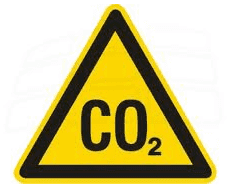Like most of you, I was firmly glued to the TV on Sunday. I watched as Prime Minister Julia Gillard announced one of the biggest changes to the Australian economy since the introduction of GST, ensuring that the 10th of July 2011 will go down in history as ‘Carbon Sunday’.
While the jury is still out on the tangible result Carbon Tax will have on reducing emissions and the environment, what we do know is that it’s here, and from 1 July 2012 there’s a whole new set of rules impacting the business landscape.
MYOB’s CEO, Tim Reed, believes ‘the direct impact of the announced policies will be positive for most businesses.’ We know that only the top 500 emitting businesses will have to pay the tax, so for most companies, it’s business as usual and we won’t have to worry about buying carbon credits.
This new policy is also one of the first to be implemented in Australia without imposing any extra paperwork on small business owners, a welcome relief for many struggling to find that illusive work life balance.
We’re also likely to see an influx of workers into the employment market, thanks to the trebling of the tax-free threshold. Small businesses are the largest employers of part-time workers, and this new incentive could mean that many of your workers no longer have to pay tax – hopefully making it easier for you to recruit employees.
So why has the Carbon Tax prompted small business confidence in the federal government to hit a 15 year low?
Many SME’s have indicated that while they don’t fully understand the Carbon Tax policy, they do believe it will have a negative impact on their business. They’re also apprehensive about the proposed change to an emissions trading scheme in 2015.
Those in the retail and travel sector are also treading with caution. Despite an increasing threat from off-shore competition, many retailers have warned that they will need to pass on higher costs to consumers, with Myer chief Bernie Brookes suggesting that operating costs for the retail giant look set to rise by between $3-6 million. The domestic tourism industry may also feel the brunt from higher costs imposed on tourism operators; the bulk of which will again be passed onto consumers. On the flip side, some economists are forecasting a boost to both industries – tax breaks have the potential to increase consumer confidence and boost spending.
Many commentators have also accused the government of leaving small businesses to fend for themselves, citing that little modeling has been done to assess the impact on Australia’s 2 million SME’s. They’re also concerned for the ability of many small businesses to simply absorb cost increases for electricity, gas and LPG – most are on increasingly tight margins in a competitive marketplace.
With two years until the next election Carbon Tax is, at least for now, here to stay. So it’s crucial that business owners get their head around what it means for them. Are you in support of the Carbon Tax policy? Have you thought about how it will impact your business?

